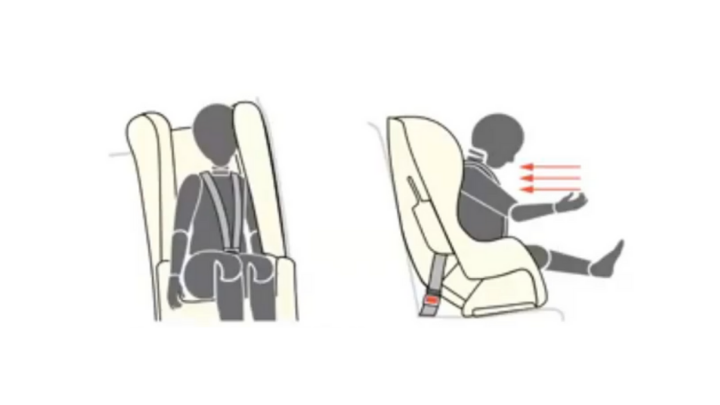Private vehicles will be required to have car back seats for children, with the implementation of Republic Act 11229 or the Child Safety in Motor Vehicles Act starting February 2.

Photo Credits: RA 11229 or Child Safety in Motor Vehicles Act Virtual Press Briefing
In 2019, President Rodrigo Duterte signed Republic Act No. 11229, or the Child Safety in Motor Vehicles Act, which requires motor vehicle owners to have child restraint systems when transporting children. It aims to guarantee the safety of infants and children and prevent road traffic injuries.
“It shall be unlawful for the driver of a covered vehicle not to properly secure at all times a child, in a child restraint system while the engine is running or transporting such child on any road, street, or highway unless the child is at least 150 centimeters or 59 inches in height and is properly secured using the regular seat belt. The child restraint system shall be appropriate to the child’s age, height, and weight,” according to the act.
The law states that drivers are required to properly secure a child in a restraint system unless the child is at least 4.92 feet tall and can be properly secured by a regular belt. Additionally, no children twelve years and below of age shall be allowed to sit in a front seat of a vehicle while traveling.
The law covers private vehicles for now, while its applicability to public vehicles is still being evaluated.
Atty. Daphne Marcelo, Program Manager at ImagineLaw, has recently presented important information and issues on RA 11229, or Child Safety in Motor Vehicles Act, during a virtual press briefing held last January 29. ImagineLaw is a non-profit public interest law group currently working with the Land Transportation Office (LTO) for its enforcement operations, conducting training about handling the implementation, particularly with child passengers involved.
Meanwhile, the LTO and its deputized law enforcement agencies will not immediately issue traffic citation tickets to violators, as authorities would first begin disseminating information for two to six months to ensure smooth enforcement of the measure.
“We will be on the warning mode, and information dissemination,” the Deputy Director of the LTO Law Enforcement Service Robert Valera stated at a virtual press briefing hosted by Buckle Up Kids PH on January 29. Valera mentioned that the first stage of their enforcement would be informing parents about the significance of the law.
Under the law, violators are fined PHP 1,000USD 17INR 1,445EUR 16CNY 124 for the first offense and PHP 2,000USD 34INR 2,891EUR 33CNY 248 for the second offense. However, third-time violators will be charged with a PHP 5,000USD 85INR 7,227EUR 82CNY 620 fine and a one-year suspension of their driver’s license.

Based on the data cited during the said virtual press briefing, there are 12,487 deaths recorded in 2018 due to road accidents in the Philippines. Furthermore, the data has shown that there are 1,226 children deaths due to road accidents in 2017, indicating 3 children deaths per day.
RA 11229 or the Child Safety in Motor Vehicles Act will be enforced starting February 2.
Source: Mind the Gap Communications, Buckle Up Kids PH, Senate.gov.ph


Hindi nga masita ng LTO yung mga mag-asawang rider na pinalaman sa gitna yung baby nila.. ito pa kaya? good luck.
Making it compulsary to all private vehicle is crazy idea. How about those seniors or families with cars but doesnt have small child anymore?
If you have a 12-year old kid of height 4, 10″, you will be required to put you child in a child car seat? Where can you but a car seat that big?
Nobody even wants to repair components that MVIC finds faulty, so what’s going to compel the same to get car seats?